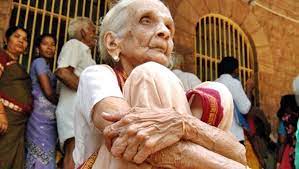As the population ages and life expectancy increases, the focus shifts from merely extending lifespan to enhancing healthspan – the years of life lived in good health and without significant disease or disability. Dr. Susan Friedman, a board-certified geriatrics and lifestyle medicine clinician at the University of Rochester School of Medicine and Dentistry, advocates for the integration of lifestyle medicine into medical care for older adults as a pivotal step toward achieving this goal.
The Essence of Lifestyle Medicine
Lifestyle medicine revolves around six core pillars: optimal nutrition, physical activity, stress management, restorative sleep, positive social connections, and avoidance of risky substances. These pillars, individually or collectively, have been linked to reduced chronic disease burden, improved physical and cognitive function, increased engagement in life, and diminished frailty and sarcopenia among older adults.
Nourishing the Body
Optimal nutrition plays a crucial role in promoting healthspan. Many older adults, particularly those living alone, may struggle with preparing nutritious meals. Addressing protein intake to combat age-related sarcopenia and promoting a diet rich in vegetables, legumes, fruit, and nuts while minimizing saturated fat and processed meat consumption are vital. Physicians can initiate discussions by eliciting a 24-hour food recall and providing appropriate nutritional guidance and resources.
Embracing Physical Activity
Encouraging older adults to engage in physical activity tailored to their preferences and abilities is paramount. Targeted exercises to prevent falls, improve muscle strength, and alleviate joint pain can be emphasized. Highlighting the cognitive and mood-enhancing benefits of exercise, along with promoting independence, can serve as motivational factors. Referral to physical therapists or exercise specialists and exploring community opportunities are recommended steps.
Prioritizing Restorative Sleep
Disordered sleep is common among older adults, despite the misconception that sleep needs diminish with age. Assessing and addressing sleep disturbances are integral components of lifestyle medicine interventions. Adequate sleep is fundamental for maintaining motivation and overall well-being, highlighting the interconnectedness of lifestyle factors.
Managing Stress Effectively
Chronic stress can detrimentally impact immune function in older individuals, underscoring the importance of stress management. Open dialogues with patients about stressors and coping mechanisms can facilitate healthier aging outcomes. Identifying sources of distress and providing appropriate support are essential for promoting resilience and well-being.
Fostering Positive Social Connections
Combatting loneliness and fostering positive social connections are crucial for maintaining cardiovascular health, cognitive function, and overall longevity. Despite its significance, discussions around social connections are often overlooked in medical settings. Utilizing tools like the UCLA Loneliness Scale can aid in identifying at-risk patients and integrating social care into healthcare delivery.
Mitigating Risky Behaviors
Assessing alcohol consumption and minimizing risky substance use are essential components of comprehensive geriatric care. Older adults may be more susceptible to adverse effects of alcohol due to age-related changes and medication interactions. Screening for alcohol misuse and providing appropriate interventions are imperative for promoting healthy aging.
Empowering Clinicians with Resources
The American College of Lifestyle Medicine offers valuable resources and educational opportunities to equip clinicians with the tools necessary to integrate lifestyle medicine into their practice effectively. By conducting lifestyle assessments and collaborating with older patients to implement positive behavior changes, clinicians can optimize healthspan and enhance overall quality of life.
Conclusion
By embracing lifestyle medicine principles and engaging with older patients on their individual needs and preferences, physicians can play a pivotal role in extending not just lifespan but also healthspan. As the aging population grows, prioritizing comprehensive and proactive healthcare approaches becomes increasingly imperative to ensure that older adults can live longer – and live better.











